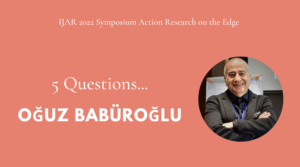Verlag Barbara Budrich was one of the sponsors of the IPSA Open Access Publishing Conference in Montreal this year and, among other things, supported the participation of one researcher from the global south – María Laura Tagina, Research Fellow and Professor at the School of Politics and Government in Universidad Nacional de San Martín, Argentina. In our “5 questions”, María Laura speaks about her impressions of the conference and the current developments around Open Access.
Dear María Laura Tagina, you participated in the IPSA Open Access Publishing Conference. What were the main topics of the conference?
The conference addressed the transition from traditional subscription-based publishing to Open Access publishing. The event was attended by editors of scholarly publications, representatives of major publishers, heads of university libraries, representatives of institutions involved in Open Access, chairs of political science associations and members of the IPSA Executive Committee. We shared different experiences of opening up scholarly publications to the public around the world and discussed how Open Access can be made sustainable. We started from the premise that knowledge should be considered a public good.
Which topics and findings were particularly interesting for your work?
As the director of a fully open access political science journal published in Argentina, it was of particular interest to me to learn about the experiences of other editors from other parts of the world. It was interesting to see both common problems and differences arising from the different contexts in which we work.
Have you noticed major differences in attitudes towards Open Access publishing among participants from different countries?
Yes, the approach to Open Access is very different in different regions of the world. A key issue is the differences in the economic resources available to universities in each country. In the Northern Hemisphere, publishers and university library consortia are exploring different alternatives to make Open Access viable, which is reflected in what are called “transformative agreement”. In some cases, consortia pay publishers for the costs of publishing articles, journals and/or books in Open Access; in other cases, these costs are borne by the authors.
In Latin America, Scielo and RedalyC (two journal collections) pioneered open access in the mid-1990s. Shortly after, in the early 2000s, institutional repositories also emerged in universities and research institutes. And in some countries (including Argentina), there are laws regulating Open Access policies that have been passed by Congress. These laws oblige state-funded universities and university institutes to make all their scientific production available to the public.
However, it is still very difficult for scientists in these countries to gain access to the publications of the world’s leading publishers, as their universities do not have the necessary funds to sign contracts allowing such access.
What current and future challenges do you see for political science regarding Open Access publishing?
In my opinion, the social sciences are more willing to support Open Access, and in this sense the political sciences are no exception. But reforms are still needed to realise the ideal of knowledge as a public good. The Covid 19 pandemic has taught us important lessons in this regard.
Would you recommend other scholars to participate in future conferences on this topic?
Yes, of course, because open access will remain, but there is a need to think further about implementation models and regulatory measures that ensure truly universal access.
Short vita in own words
 María Laura Tagina is a full professor at the School of Politics and Government of the National University of San Martín, in Argentina. She has published on elections in Argentina and Latin America; media, economy, and political behavior; transnational vote and public opinion. In 2015 she received the Elizabeth Nelson Award from the World Association for Public Opinion (WAPOR). She has been a member and General Secretariat of the Board of Directors of the Argentine Society for Political Analysis (SAAP) between 2002 and 2007. Since 2019, she has served as Director of Revista SAAP, an open access scientific journal on Political Science published since 2002 in Argentina and sponsored by SAAP.
María Laura Tagina is a full professor at the School of Politics and Government of the National University of San Martín, in Argentina. She has published on elections in Argentina and Latin America; media, economy, and political behavior; transnational vote and public opinion. In 2015 she received the Elizabeth Nelson Award from the World Association for Public Opinion (WAPOR). She has been a member and General Secretariat of the Board of Directors of the Argentine Society for Political Analysis (SAAP) between 2002 and 2007. Since 2019, she has served as Director of Revista SAAP, an open access scientific journal on Political Science published since 2002 in Argentina and sponsored by SAAP.
Portrait photo: Yee Fun Wong / IPSA
Learn more about the Open Access approach of Verlag Barbara Budrich and get to know our services here.

